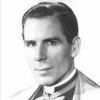Old Age is not so fiery as Youth; but when once provoked cannot be appeased.
Thomas Fuller (1654-1734) English physician, preacher, aphorist, writer
Gnomologia: Adages and Proverbs, #3704 (1732)
(Source)
Quotations about:
provocation
Note not all quotations have been tagged, so Search may find additional quotes on this topic.
When it gets down to having to use violence, then you are playing the system’s game. The establishment will irritate you — pull your beard, flick your face — to make you fight. Because once they’ve got you violent, then they know how to handle you. The only thing they don’t know how to handle is non-violence and humor.
John Lennon (1940-1980) English rock musician, singer, songwriter
Interview, Bed-Ins for Peace, Montreal, Canada (1 Jun 1969)
(Source)
Let us shun extremes, not only because each extreme is in itself a positive evil, but also because each extreme necessarily engenders its opposite. If we love civil and religious freedom, let us in the day of danger uphold law and order. If we are zealous for law and order, let us prize, as the best safeguard of law and order, civil and religious freedom.
Thomas Babington Macaulay (1800-1859) English writer and politician
Speech on re-election to Parliament, Edinburgh (2 Nov 1852)
(Source)
Spiritual strength and passion, when accompanied by bad manners, only provoke loathing.
Friedrich Nietzsche (1844-1900) German philosopher and poet
The Will to Power, Part 1, “Critique of Religion,” Sec. 175 [tr. Ludovici] (1888)
(Source)
War is mankind’s most tragic and stupid folly; to seek or advise its deliberate provocation is a black crime against all men. Though you follow the trade of the warrior, you do so in the spirit of Washington — not of Genghis Khan. For Americans, only threat to our way of life justifies resort to conflict.
To avoid dissensions we should ever be on our guard, more especially with those who drive us to argue with them, with those who vex and irritate us, and who say things likely to excite us to anger. When we find ourselves in company with quarrelsome, eccentric individuals, people who openly and unblushingly say the most shocking things, difficult to put up with, we should take refuge in silence, and the wisest plan is not to reply to people whose behavior is so preposterous.
Those who insult us and treat us contumeliously are anxious for a spiteful and sarcastic reply: the silence we then affect disheartens them, and they cannot avoid showing their vexation; they do all they can to provoke us and to elicit a reply, but the best way to baffle them is to say nothing, refuse to argue with them, and to leave them to chew the cud of their hasty anger. This method of bringing down their pride disarms them, and shows them plainly that we slight and despise them.
I would permit no man, no matter what his colour might be, to narrow and degrade my soul by making me hate him.
Booker T. Washington (1856-1915) American educator, writer
Up from Slavery, ch. 11 (1901)
(Source)
This has been paraphrased in various ways, and is the source of Martin Luther King, Jr's quote he attributed to Washington: "Let no man pull you so low as to make you hate him" (e.g., Stride Toward Freedom, ch. 6 (1958)). King used this or variants of this paraphrase frequently in his speeches, though it was only in his early activism that he referenced Washington by name.
It does not require a majority to prevail, but rather an irate, tireless minority keen to set brush fires in people’s minds.
“Never laugh at live dragons, Bilbo you fool!” he said to himself, and it became a favorite saying of his later, and passed into a proverb.
J.R.R. Tolkien (1892-1973) English writer, fabulist, philologist, academic [John Ronald Reuel Tolkien]
The Hobbit, ch. 12 “Inside Information” (1937)
(Source)
Miss Manners’ meager arsenal consists only of the withering look, the insistent and repeated request, the cold voice, the report up the chain of command, and the tilted nose. Also the ability to dismiss inferior behavior from her mind as coming from inferior people. You will perhaps point out that she will never know the joy of delivering a well-deserved sock in the chops. True — but she will never inspire one either.
Judith Martin (b. 1938) American author, journalist, etiquette expert [a.k.a. Miss Manners]
“Miss Manners,” syndicated column (1980-05-08)
(Source)












